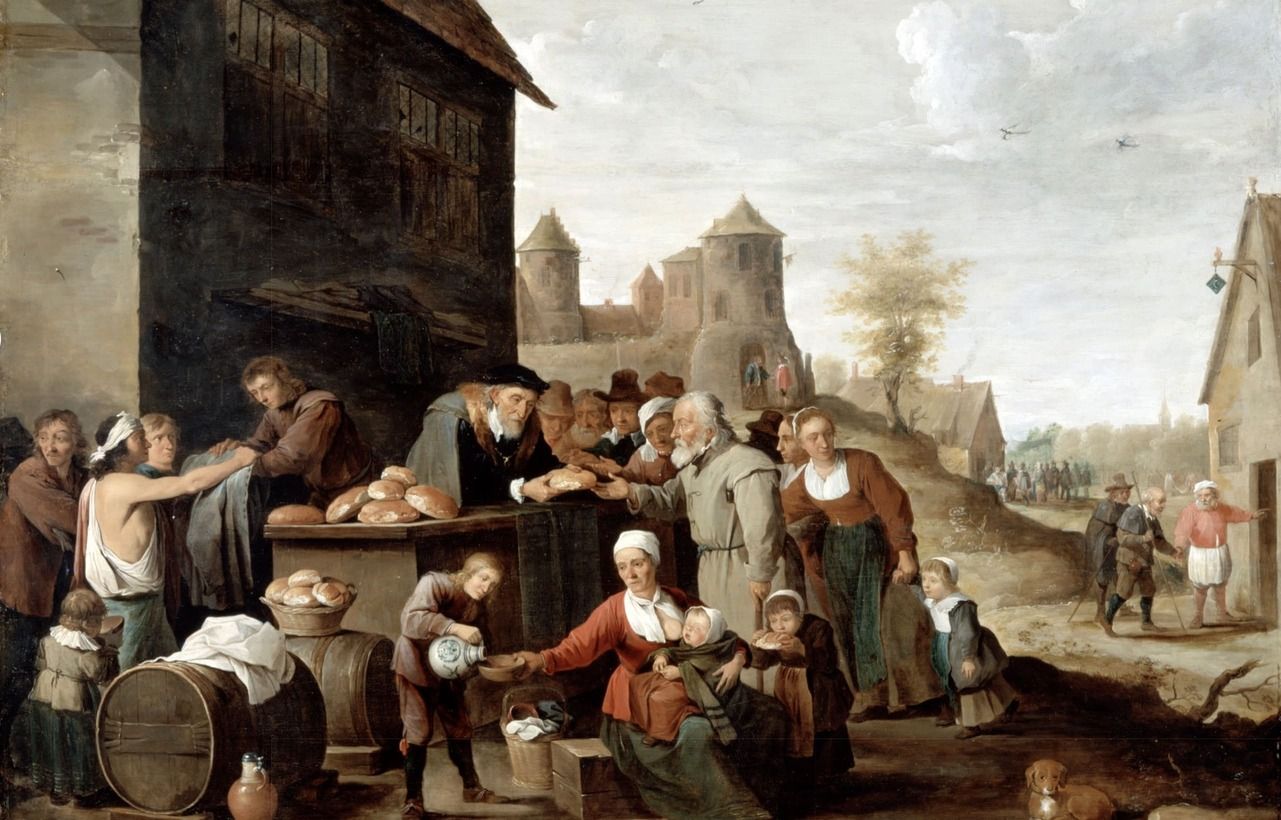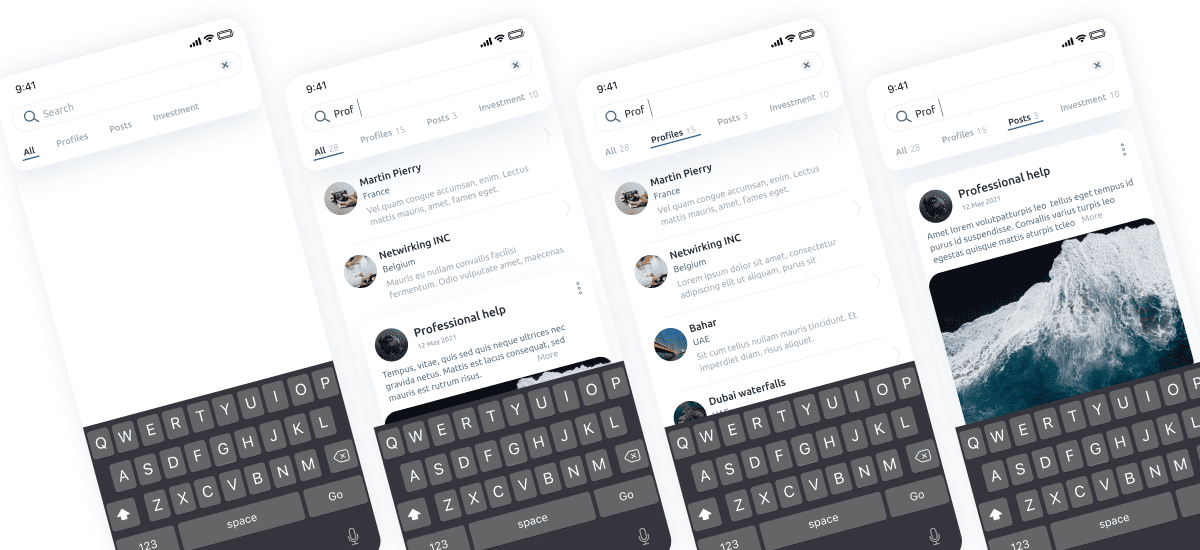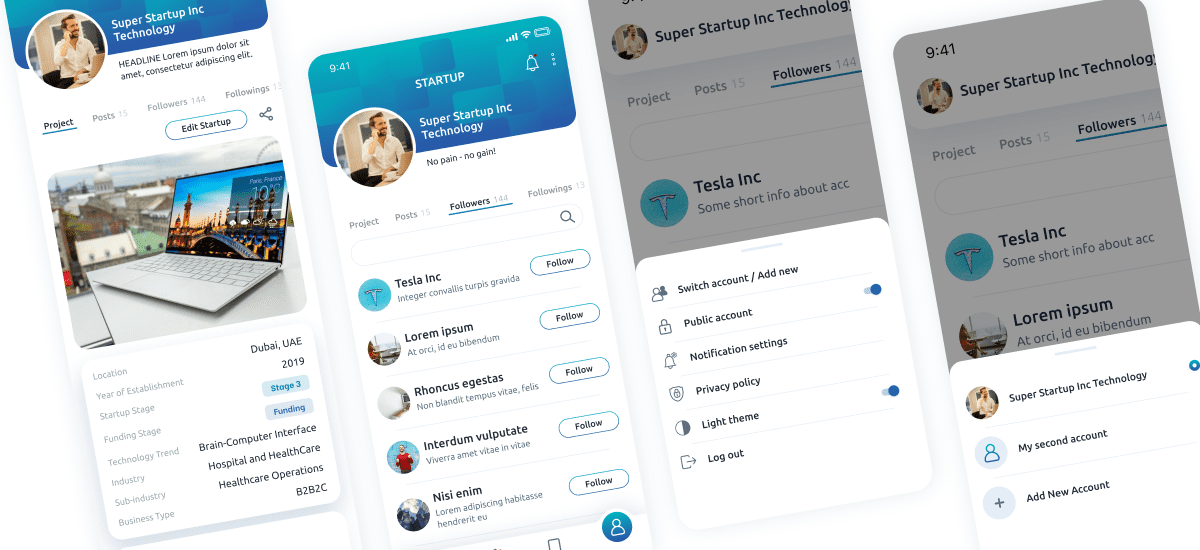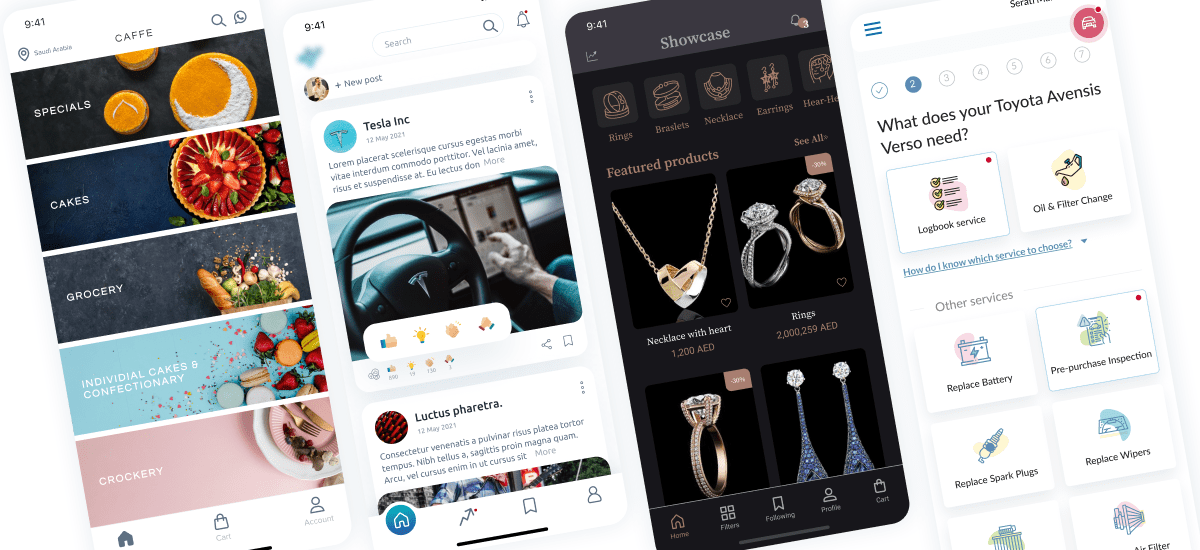Marketplace MVP Development: Types, Features and Costs

Can you recall the times when you had to go from one offline store to another one looking for specific goods? This seems surreal as online has been strongly integrated into our daily lives.
Figures show the growth of online purchases. Michael Keenan’s research posted on Shopify says that 2 years earlier, 17.8% of the whole number of purchases were conducted online. The number is expected to reach 21% by the end of the year. 3.2% growth over a year sounds impressive, isn’t it? In this regard, the thought to create a marketplace may seem to be winning.
Let us a red-letter: when you make it to marketplace development, it has to unravel the troubles of three sides: a vendor, customer, and owner which is budget-and-efforts-and-time-consuming. The question is how to steer clear of falling flat on the face and make a product that will address the problems and fly high by using a budget-and-efforts-wise approach. We came up with a solution - develop a marketplace Minimum Viable Product (MVP).
Minimum Viable Product is an initial iteration fitted with core features and solving the primary point of vendors, customers, and owners. In other words, MVP is a time and effort saver, development cycle optimization, and risk reducer. Celadon developers are backers of MVP app development as it does massive help with:
- Understanding if the TA enjoys the concept
- The determination of the bare functionality and components correct selection
- Finding the most useful and popular elements
- Premature adopters lure that tend to remain loyal
- Spotting potential hardships to resolve them the right away
In this article, we’ll leave no stones unturned on why an idea to build an MVP for a marketplace is winning, how to build a marketplace MVP, what are its types, and also touch on the costs to make a marketplace MVP.
What Are Marketplace Types?
A marketplace is a medium platform or app where vendors can offer their products or services for clients to purchase and book.
Leaning on the vendor vs customer relations there are several models:
- Business to Business (b2b)
- Peer to Peer (p2p)
- Business to Customer (b2c)
- Customer to Customer (c2c)
The amount of marketplace types across industries is rapidly growing as more businesses go online.
Here’s the list of the most prevalent types with well-known representatives:
- Goods and Products - Amazon, Asos, AliExpress.
- Services - bolt, Booking.com, Upwork.
- Media - Netflix, The New York Times, Spotify.
- Finance - Kickstarter, Indiegogo, CircleUp

Marketplace search feature
Marketplace MVP Purposes
A concept check
A new start is always a risk. Even though your idea appears to be a lick of the litter, it may lead you through the way from hero to zero. If early adopters don’t lean towards it, all the efforts and budget are wasted. Creating an online MVP marketplace becomes a helping hand.
MVP for marketplaces counts your pennies
Setting off an MVP is thrifty if compared to crafting full-fledged products. The money saved may be invested in post-release activities. Yep, the MVPs can be promoted and marketed. We recommend going for a marketing campaign for your MVPs and unfolding a marketing strategy alongside the project.
Crowd Puller
Early customers define a project’s destiny. They provide feedback that gives directions for upcoming expansions, modifications, and improvements. Also, first adopters, in case they enjoy the MVP, are to remain loyal.
This writing is a single-stop source to get to the bottom of what’s needed to build an MVP for an online marketplace. We kept our shoulders on the wheel to leave no questions unanswered. Keep reading, and we’ll disclose the best developer in the field (Spoiler: Celadon).
Key Elements in Marketplace MVP Development
When dealing with features and functionality, foremost, you ought to figure out the features pack that will fit the users’ needs. Pivoting on our experience in the development of an MVP for marketplaces, we highlighted the all-important ones:

User profile
Homepage
Homepage dictates the first impression as it’s the first item a user catches when opening a marketplace. Add the most significant information on this page - it may be a brief description, promotions, or greetings. Welcome the visitors in the best possible way.
Sign-in
If a homepage is the first item users encounter, the sign-in is the first interaction with the platform. It’s a gate to purchasing and vending. We recommend adding several signup alternatives. The most common are sign-in by using an e-mail, phone number, Facebook, LinkedIn, or other social media.
Vendors and customer profiles
Create a convenient-to-manage and informative vendor page so that the customer could obtain all the necessary info about the seller and provided values. While it’s clear that a vendor's account is a must-have, opinions on the importance of customer profiles may be different. If you want to ensure more safety for your vendors, then you’d like to add them.
An item page
Product and service pages are the most frequently viewed. This is a decision-making element as It’s the spot where a shopper concludes on buying. When developing an MVP for an online marketplace, we put forward to include:
- name
- pictures
- description
- characteristics
When developing a full-featured product, you may also add other handy features like video reviews, for example.
Search
Imagine shopping in a marketplace without being able to hunt out the desired item? We hardly can. Search option absence will harden maneuvering through the platform and massively complicate the shopping. Those flaws may result in user outflow.
User roles
When we’re conversing about the roles, you naturally arrive at a vendor and a customer. These are a must for MVP. More roles may be added later leaning on the marketplace kind and needs.
Payment
A marketplace is designed for selling-buying relations which require payment. We recommend adding several payment options: card, cash, e-wallets, etc. Multiple payment options are achieved by payment gateways:
- Stripe
- Braintree
- PayPal
- MANGOPAY
- Adyen
- Skrill
- Square
- Dwolla
- Google Checkout
Admin panel
The Admin panel is a handy tool for you as an entrepreneur to handle the workflow and manage all the seller-buyer interactions.
Messaging
Communication is a trouble-solving thing. Empowering communication between buyers and sellers is key to a trusted marketplace.
Feedback
Feedback enhances the product or service selling. They help to earn buyers’ trust and confidence in purchases to be made.
Notification
Notifications aid customers to stay tuned and sweetens the user experience. They alert users on new texts, order requests, promotions, updates, etc.
When your development is sailed and the first feedback is received, you can tack components and functionalities or implement adaptions to gradually upgrade an MVP into a boomy marketplace.

Product page
How to Build an Online MVP Marketplace
Celadon has built a good deal of marketplaces and shaped up our own development path.
1. Pre-production
In Celadon we don’t just develop, we do our best to throw a marketplace MVP that will hit the market. Detailed research and analyses are the dress for success. At this stage, we set goals, examine competitors, spot weaknesses, make up the roadmap of workflow, and estimate the budget.
2. Features highlight
Discovery smoothly falls into features and functionality determination. The challenge here is to create the MVP version of a custom marketplace that is sufficient and doesn’t push too hard with unnecessary functionality. We keep an MVP balanced.
3. Design
The design is a pre-coding phase. Keeping in mind the idea of the outstanding user experience, we put ourselves in the user’s place and strive to make the UX concept as much friendlier. Tip: the creation of wireframes, and clickable design mockups, make the way to the top UX.

Notifications
4. Development
It’s odd to mention that at this stage the code is written. Yet, it’s being tested and debugged. The code travels from developers to testers and back until it gets free of bugs.
5. First users’ feedback
Building an online marketplace MVP has been rounded off, but the assignment is to be run on. Once a Marketplace MVP is deployed to the world, it’s time to nose up premature adopters’ sentiments. Their reviews will guide you in the direction of how to develop online marketplace MVP down the road and what’s to be rectified.
6. Support & Maintenance
A marketplace Minimal Viable Products sets off for the long journey, and we kick-off to create a marketplace MVP for another customer. Actually, we don’t. We hold up to sustain and support the product.
How Much Does It Cost to Build an Online Marketplace MVP
We’ve got the hang of how to build an online MVP marketplace so what about budget? The costs to build a marketplace MVP vary for a different project and leans on the several factors:
- Features nature and quantity
- Timeframe to get a marketplace MVP moving
- Developers selection - you may want to engage in-house, outsourced, or freelance developers. Each of them has different hourly rates. The rates are also influenced by geographical location.
- Contractual obligations
Celadon has developed tons of marketplace MVPs and pivoting on our background the intermediate prices are between $15,000 and $50,000.
Read our article to dig up what affects MVP costs.
What Makes Marketplace Minimum Viable Product Be Successful
On top of everything mentioned above, let's get it across that a marketplace MVP isn’t a full-fledged product but rather a trial. The success of the experiment is measured differently. To understand if a marketplace MVP is killing, we answer these 3 questions before production and release:
- What expectations are you set to satisfy in this trial?
- What is the target data to be collected via the trial?
- What are determining factors for reaching the targets?
If the ready-made online marketplace development KPI figures do not correspond to the answers, we review the project and search for things to be fixed so that the marketplace MVP would smash it.
Naturally, if an MVP’s KPI is satisfactory we put development back in close partnership with our clients to uphold the product and introduce new traits.
Consider Celadon's to gain ground in Marketplace MVP
Celadon is an end-to-end development company that uses the most modern stack technology to deliver outstanding solutions. Our solid background includes multiple projects of marketplace MVPs that have evolved into full-fledged products. Let us spare a word about some of them:
Residential housing marketplace that originated as an MVP and build with a top-notch technology stack and complex DevOps approach. The primary goal is to make construction processes easier. Schedule change tracking, progress reports, order inspection, completion estimates, and other features have been introduced for full control at each stage of construction.
Second-hand marketplace focused on books, CDs, DVDs, and games. Our task was to bring the existing and poorly functioning website to life by redesigning, adding new functionality and features, and integrating the admin panel, and other core elements. Yet, we have developed Android and iOs applications. The main perk is ISBN and EAN scanning tool that aids to set pricing.
Android and iOs b2c marketplace designed for jewelry selling-purchasing. The app is fitted with an admin panel for vendors and sellers, a majority of filters to optimize the search, automated pricing, wishlist, and personal accounts.
Look at our case studies to make sure we’re the team you’d like to trust in your venture. The cases cover the nuts and bolts of the work journeys into the MVP development world.
Still, wondering how to create a marketplace website MVP? The answer is Celadon. We implement the result-focused approach and blue-sky thinking to develop high-quality MVPs. Also, we’ll care about further transformation into a full-featured marketplace with offering monetization and promotion drives. Drop a message to create an excellent and flawless marketplace MVP.